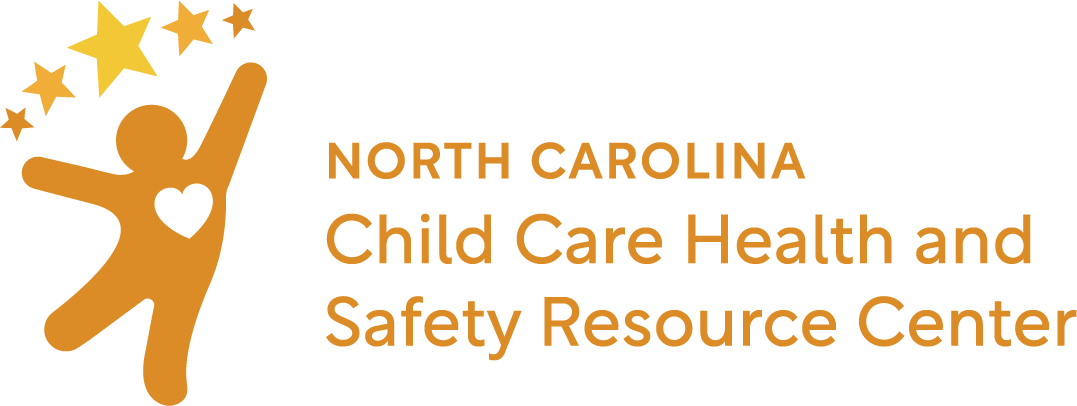Daily Health Check
The Daily Health Check is a quick daily routine for families and early educators to communicate about a child’s current needs. The Daily Health Check includes observing the child and sharing information about their emotional and physical health. Conducting a regular Daily Health Check is one way to identify children who are in distress, sick, or injured and need exclusion from care or who need additional support to safely attend child care that day. The Daily Health Check poster should be used to guide the process.
Early identification of concerns can help a facility:
- prevent the spread of communicable disease
- determine whether it is safe for the child to remain at the facility
- address signs and symptoms of illness and injury
- address concerns affecting the child’s mood or behavior
Who does the Daily Health Check?
- The child care director/operator/early educator or staff person that greets the child upon arrival
- The child’s classroom teacher if they notice the child is showing physical or mood changes during the day
- The child’s transportation provider if they are transported by the facility
When to do a Daily Health Check
- Each morning when the child arrives, before the family leaves
- If the child is transported by the facility, when they are picked up for transportation
- Any time an early educator notices the presence of symptoms or a change in the child’s behavior or appearance throughout the day
If the person conducting the Daily Health Check is not able to speak directly to the family, they should review additional forms of communication such as:
- written notes/email/text
- health checklists
- daily logs
How to do a Daily Health Check
The environment should be:
- comfortable and relaxed
- respectful of the child’s body and feelings
- respectful of the family’s privacy and culture
Ask the person dropping off the child how the child is doing and if there is anything they would like to share. Asking “how have you been since we last saw you?” is one way to invite communication.
- Common health-related concerns can include changes in:
- appetite (eating or drinking more or less than usual)
- sleep patterns
- urine or bowel movement patterns
- skin, such as presence of a rash
- new medical information or medication.
- Family situations that could impact the child’s mood or behavior while in care include lack of adequate shelter, food, medical home, transportation, or other worrying family dynamics.
Ask the child how they are feeling today.
- For example, ask the child to point to the image that matches how they are feeling on the Daily Health Check poster. This is especially important for children who are unable to use words to express their feelings.
At the child’s eye level:
- Look for signs and symptoms of illness.
- Listen for complaints and unusual sounds from the child that might indicate that they are not feeling well.
- Feel for a change in the skin that might indicate a fever or dehydration.
- Smell for an unusual odor that might indicate an illness.
Using the Daily Health Check information
If changes or concerns are identified such as such as:
- symptoms are present
- the child is unable to participate comfortably in activities, as determined by early educators
- more care is needed than early educators can provide without compromising the health and safety of other children
The facility must determine if the child must be excluded.
- At drop off: The child may need to leave if it is determined that exclusion criteria are met based on the child’s symptoms and needs.
- During the day: Notify the parent, legal guardian, or emergency contact that it is necessary to pick up the child as soon as possible Separate the child from others if appropriate based on symptoms. See Communicable Disease Toolkit for more information, including determining exclusion based on symptoms or diagnosis.
Any time child maltreatment is suspected, early educators are required by law to contact the local Department of Social Services. Maltreatment could include abuse (emotional, physical, and/or sexual) and neglect.
Daily Health Checks should guide decisions about the inclusion and exclusion of a child from care. Facilities should follow guidance from their own policies, NC Child Care Rules, and local health authorities. Referring to facility policy will help families understand when and why their child may be excluded.
Documentation
Early educators should document each child’s Daily Health Check information. A sample documentation tool can be found here. Documentation should be kept for at least one month. This documentation can be used to determine any changes or new patterns that occur over time that might be of concern.
For more information on Daily Health Checks contact your Child Care Health Consultant.
References
Caring For Our Children (COFC)
- Standard 3.1.1.1 – Conduct a Daily Health Check
- Standard 3.1.1.2 – Documentation of the Daily Health Check
NC Division of Child Development and Early Education, NC Child Care Rules
- 10A NCAC 09 .0804 (a) (12) Infectious and Contagious Diseases
- 10A NCAC 09 .1720 (a) (12) Medication Requirements
Aronson, J. (2019) Model Child Care Health Policies. Appendix N.
